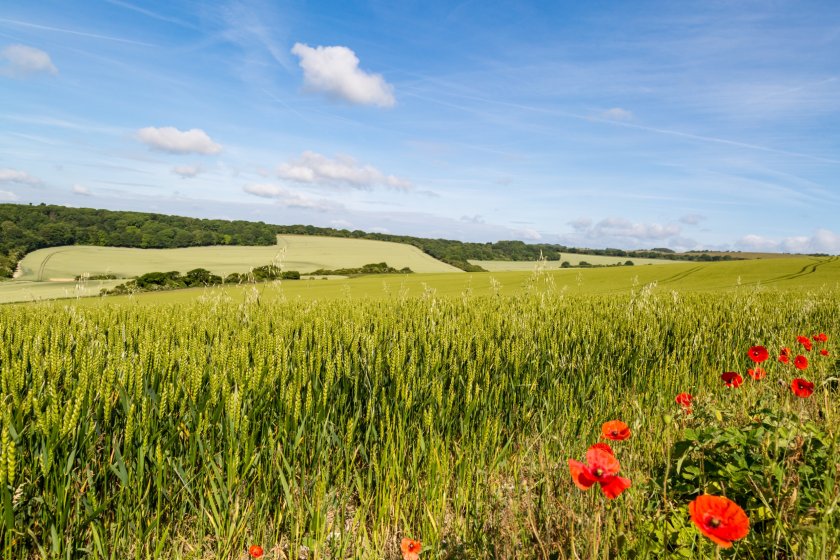Nature-friendly farmers urge Higher Tier stewardship expansion

Nature-friendly farmers and conservationists are urging the government to increase investment and expand the Countryside Stewardship (CS) Higher Tier scheme.
Organisations including the Nature Friendly Farming Network (NFFN) warn that many farmers are being blocked by tight caps on the number of successful Higher Tier applications.
With the next application window due to open this summer, the bodies are calling for greater accessibility and a larger share of the farming budget to be allocated to this scheme.
The NFFN, along with the Royal Society for the Protection of Birds (RSPB), are calling for it to be expanded significantly, arguing this is needed to meet legally-binding targets to halt nature decline by 2030.
The most ambitious tier of the CS programme - the Higher Tier scheme - provides support for multi-year projects that restore habitats while also improving soil health, reducing emissions and promoting sustainable food production.
To demonstrate the scheme’s value, NFFN and RSPB have launched a series of videos highlighting the work of participating farmers.
Among them is Sussex farmer Martin Hole, whose farm includes wetlands, reedbeds and marshes that support a wide range of species.
“The CS scheme has been a fundamental part of how we have been able to manage these internationally-important wetlands and increase vegetation and bird numbers,” Mr Hole said.
“We now have more than 20 dragonfly species and over 100 types of aquatic plant. There is still a lot more we can do for nature conservation, but we need the long-term investment from the scheme to continue this process.”
It comes as the sector remains unsettled following the government's unexpected closure of the Sustainable Farming Incentive (SFI) in March.
In response, the NFFN is urging the government to rebalance the Environmental Land Management scheme (ELMs), ensuring that all three tiers — SFI, CS Higher Tier and Landscape Recovery — are properly funded.
Jenna Hegarty, head of policy at the body, stressed the importance of the Higher Tier scheme, as getting it right "is crucial for the scale of change we need".
“The government must protect the farming budget through the end of this parliament," she added.
"At the same time, farming ministers must ensure that public money delivers environmental improvements, and that high-level schemes remain accessible to the farmers who want to go further for nature.”
The RSPB echoes the call for reform, pointing out that with 70% of England’s land used for agriculture, empowering farmers is key to addressing biodiversity decline and climate pressures.
“CS Higher Tier is a vital lifeline for nature-friendly farming in our most treasured landscapes," said Alice Groom, head of sustainable land use policy at the charity.
"But in recent years, too many farmers have struggled to access it, as funding and focus shifted to entry-level schemes.
"If we're serious about hitting nature and climate targets, government must commit more of the farming budget to this scheme when it reopens this summer."








